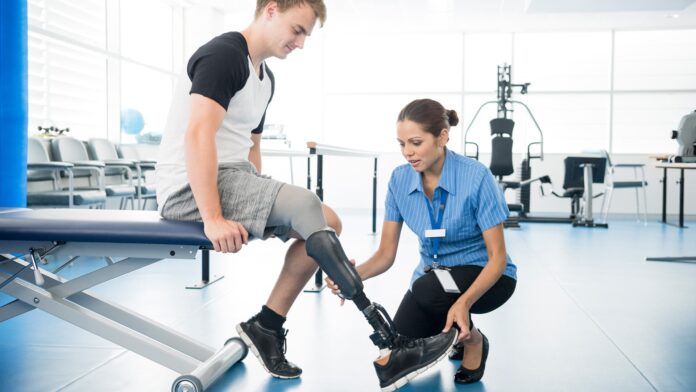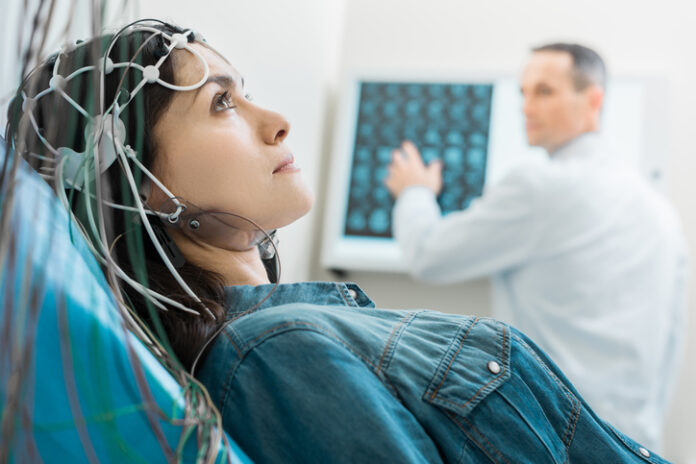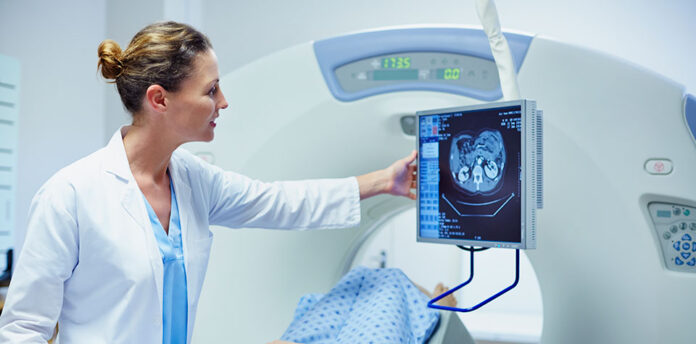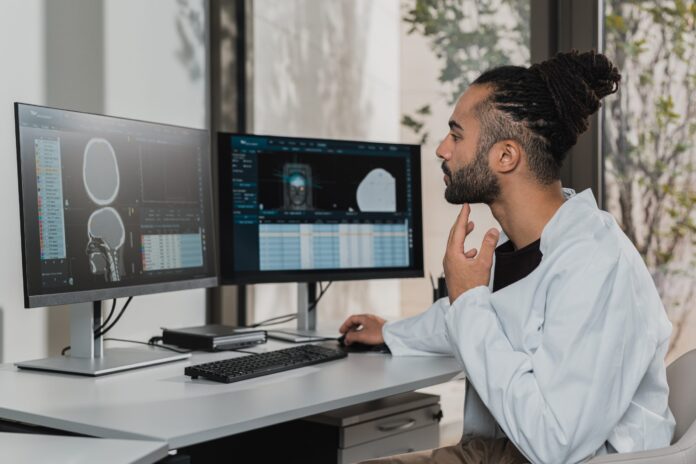When it comes to healthcare, doctors and nurses often steal the spotlight. However, behind the scenes, a group of unsung heroes play a vital role in patient care and treatment. These individuals are allied health professionals, and they work diligently to support medical teams and ensure the well-being of patients. While many are familiar with popular allied health careers like physical therapy and dental hygiene, several hidden gems remain relatively unknown. In this article, we will explore seven fascinating allied health careers that are not widely recognized, shedding light on the remarkable work carried out by these professionals.
Art Therapists

Art therapists harness the transformative power of art to help individuals express themselves, manage emotions, overcome mental health challenges, and heal. Through a combination of counseling and art-making techniques, these professionals guide their clients on a journey of self-discovery and personal growth. Art therapists work with people of all ages and backgrounds, including children, adolescents, adults, and the elderly. They create a safe and supportive environment where individuals can explore their thoughts, feelings, and experiences through various art forms, such as painting, sculpting, and drawing. By analyzing the artwork produced, art therapists gain insight into their clients’ emotions and use it as a catalyst for therapeutic interventions. Art therapy has been effective in treating a wide range of conditions, including trauma, anxiety, depression, and substance abuse, making art therapists invaluable members of the healthcare team.
Perfusionists
In the high-stakes world of cardiac surgery, perfusionists are the unsung heroes who ensure the circulation and oxygenation of a patient’s blood during complex procedures. These highly trained professionals play a critical role in maintaining the vital functions of the heart and lungs. Perfusionists operate the heart-lung machine, also known as the cardiopulmonary bypass machine, which temporarily takes over the functions of the heart and lungs during open-heart surgeries. They monitor the patient’s blood pressure, heart rate, and oxygen levels, adjusting the machine accordingly to maintain optimal conditions. By collaborating closely with the surgical team, perfusionists ensure the patient’s safety and well-being throughout the procedure. Their expertise extends beyond the operating room, as they also provide essential support in other areas, such as intensive care units and organ transplantation.
Orthotists and Prosthetists

Orthotists and prosthetists are allied health professionals who specialize in designing, fabricating, and fitting custom orthotic and prosthetic devices for individuals with physical disabilities. Their work enables people to regain their mobility and lead fulfilling lives. Orthotists work with patients who require orthotic devices, such as braces, splints, and shoe inserts, to support weakened or injured limbs and improve their function. Prosthetists, on the other hand, focus on creating and fitting prosthetic limbs for individuals who have undergone amputations or were born without a limb. These professionals assess patients’ needs, take detailed measurements, and collaborate with other healthcare providers to develop personalized devices.
These professionals combine their knowledge of biomechanics, materials science, and patient care to create devices that are both functional and comfortable. They work closely with their clients, ensuring proper fitting and alignment of the devices, and providing ongoing support and adjustments as needed. By restoring mobility and independence, orthotists and prosthetists make a significant impact on the lives of individuals with physical impairments.
Genetic Counselors
Genetic counselors are healthcare professionals who specialize in the field of genetics and provide guidance to individuals and families who may be at risk of inherited conditions. They play a crucial role in helping people understand their genetic information, make informed decisions, and navigate the complexities of genetic testing.
They work closely with patients to assess their risk factors, family history, and personal concerns. They provide detailed explanations of genetic conditions, inheritance patterns, and the potential implications for the individual and their family members. Genetic counselors also help patients interpret genetic test results, offering emotional support and helping them make decisions about family planning, treatment options, and preventive measures.
Electroneurodiagnostic Technologists

Electroneurodiagnostic technologists, or END techs, are healthcare professionals who play a critical role in diagnosing and monitoring conditions related to the nervous system. They use specialized equipment to record electrical activity in the brain, spinal cord, and peripheral nerves, aiding neurologists in diagnosing a wide range of neurological conditions such as epilepsy, stroke, sleep disorders, and degenerative diseases like Alzheimer’s. The tests they conduct include electroencephalograms (EEGs), evoked potentials (EPs), polysomnograms (PSGs), and nerve conduction studies (NCS). Aside from being technically skilled, these professionals also need excellent interpersonal skills as they work directly with patients, explaining procedures and easing any anxieties they may have about the tests.
Audiologists
Audiologists are healthcare professionals specialized in diagnosing, treating, and managing hearing and balance disorders in individuals of all ages. They work with patients who have problems with auditory and vestibular system portions of the ear, utilizing technology and therapeutic strategies to improve or restore a person’s ability to communicate and enjoy the sounds of their environment. They perform a series of tests to determine the precise degree of hearing loss, the type of hearing loss, and the best course of treatment. Audiologists can prescribe hearing aids, cochlear implants, and other assistive listening devices. Furthermore, they provide training in speech or lip reading, auditory training, and management of tinnitus. They also counsel families on how to cope with the devastating loss of hearing, providing guidance and support for a better quality of life.
Radiation Therapists

Radiation therapy is a critical component of cancer treatment, and radiation therapists are the skilled professionals responsible for administering this specialized treatment. Working closely with oncologists, radiation therapists utilize advanced technology to deliver targeted doses of radiation to cancerous tumors while minimizing damage to healthy tissues. Radiation therapist programs train students in radiation physics and anatomy to precisely calculate the dosage and create treatment plans tailored to each patient’s unique needs. They operate highly sophisticated machines, such as linear accelerators, to deliver radiation therapy accurately. Additionally, they monitor patients during treatment, ensuring their comfort and well-being while maintaining the effectiveness of the therapy. The compassionate care and attention provided by radiation therapists not only contribute to the physical healing of patients but also offer invaluable emotional support during a challenging time.









